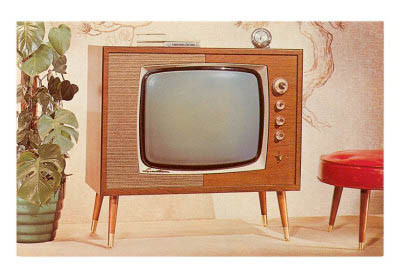Our View Event - Media Focus
Posted by Camilla Brueton, Thursday 27th October, 2011

The Our View event in London last week was an opportunity for all of Our View to take part in shaping the legacy of Accentuate.
The event had a media focus. With the Paralympics rapidly approaching and the impact of government cuts to benefits and services becoming visible, the coverage of disabled people in mainstream media is high.
Not all of this is progressive, and the media still has a tendency to revert to stereotypes, portraying disabled people as either brave heroes or fraudulent scroungers.
This depiction has a huge influence over the general public’s knowledge of disability and attitudes towards disabled people, so exploring and attempting to influence the relationship between the media and disability could be an important step towards Accentuate enabling a cultural shift.
The event kicked of with three keynote speakers:
Maggie Woolley spoke about being one of the original presenters on the BBC’s See Hear program and how as a Deaf person, her consumption of media has changed radically over 30 years. As a result of advances in technology and legislation, with subtitling now routinely available, her TV choice is extended beyond watching Coronation Street or signed programs at 2am in the morning. With Deaf people now leading the creation of output for TV, a real shift in the production of media is beginning.
Andrew Dickenson, theatre critic from the Guardian gave us an insight into working in the mainstream press and the debate about how a broadsheet newspaper’s arts section should cover disability arts. If it’s good and would appeal to their readership- surely they would know about it? Or do they? Andrew spoke positively about the Guardian’s desire to broaden its networks and the opportunities it creates for new voices to break into journalism.
Allan Sutherland shared with us his varied experiences of working as a journalist and scriptwriter. He spoke about the changes in commissioning which have made some involved in TV and radio less willing to support the unknown or risky. So whilst time moves forward, we may not always be making progress. Allan also raised concerns around the absorption of disability programming into mainstream content. We have moved away from the ghetto of a ‘disability magazine’ program on a Sunday afternoon- what has replaced it?
These presentations gave much food for thought and informed the discussions in the next section of the afternoon.
Lasting questions for me surround the ‘dumbing down’ of content mentioned by both Maggie and Allan, with the See Hear anniversary program featuring a slot on her changing hairstyles and Allan seeing C4’s recent program ‘7 Dwarves’ as an example of a step back in the portrayal of disabled people on TV.
I wonder if both examples are symptomatic of the modern media’s desire to avoid serious content, to sensationalise, to trivialize, to entertain, to get ratings rather than educate. Over the last 50 years, TV has become much more informal, newsreaders can now joke with their weather presenters instead of reading the news with a stiff upper lip in BBC English. Whilst I like this, is it part of TV positioning itself as a less serious medium? Apart from designated high brow programs and channels like Newsnight and BBC4 or programs with high production values like C4’s ‘Inside Incredible Athletes’, the majority of TV is now delivered in a tabloid format. Reality TV (such as 7 Dwarves) is another example of this- we are now the actors yet what is portrayed is far from reality, it’s a modern freak show designed to entertain.
However, I’m not letting the media off the hook so easily as it has an amazing power to influence the general public’s attitudes and opinions. It is important to remember the link between editorial and commissioning decisions and people’s everyday experiences of the real world.
Where do we go from here? The media won’t change overnight, or probably won’t appreciate or listen to being told how to behave, but opening up the debate and actively engaging with those who have influence over its production may begin create shifts.









Comments
Add a comment
Comments are moderated, and will not appear immediately.